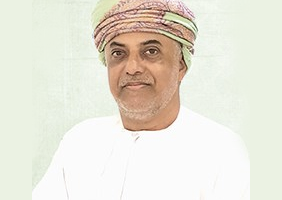
What is your strategy to achieve your goals and what distinguishes it from other players?
Our main strategy is to provide third-party logistics services with world-class standards. Our backbone is our high quality human resources. To accomplish this, we established the infrastructure, main warehouses, drop-points, and entire supply chain. Other important aspects are software, IT management, cold chain, monitoring, and tracing, which are all maintained at international standards in our everyday practice. We have been ranked among the top-25 logistics operators in the GCC for the past five years. This helps us remain competitive over other local and international players in the country. Currently, we are focused on providing high-quality cold chain services, and we provide a guaranteed cold-chain and tracking system to our clients that is maintained throughout all stages of transportation and storage. We have many expansion plans and are planning to build new warehouses in other regions to cover demand for high quality logistics services. In terms of dry port services, we currently operate the only dry port in Oman under the name of Muscat Container Depot. We are also considering investing in the new dry port project at Khazzaen in the South Batinah region, which has great future potential for being the main logistics hub.
BIOGRAPHY
CEO of Al Madina Logistics (AMLS) and CEO of Muscat Container Depot (MCD), Mahmood Sakhi Al Balushi has been instrumental to both companies’ growth. AMLS is the leading logistics provider in Oman and the only distribution center in Oman certified with ISO22000. Mahmood has contributed toward developing Oman’s Logistics Strategy 2040. He has also participated in drafting the implementation plans of the Tanfeedh Program. A board member of the Oman Logistics Association, he holds an MBA from Franklin University and is a guest lecturer at various universities and colleges in logistics, supply chains, entrepreneurship, and strategy.
Al Madina Logistics runs the Muscat Container Depot, the first and only inland port in Oman. How has that given you an advantage over other competitors?
This was an initiative we developed to help the main economic market at Muscat and nearby regions be connected with Sohar Port, in addition to providing CFS services. The Muscat Container Depot (MCD) has been playing a vital role in providing competitive services to importers and exporters through the Sohar Port, including CFS, fumigation, and frozen-fish-export container services. The depot works as an independent unit of Al Madina Logistics. To avoid conflicts of interest, Al Madina Logistics does not interfere with clearing and forwarding services at the MCD. This to support all freight forwarding and clearing companies. MCD provides all the supporting infrastructure for the customs authority and other government agencies, local freight forwards, and clearing companies to provide services to local importers and exporters. In terms of competition, there are few companies that provide similar services; however, MCD still has over 90% of the market. The competition is a healthy sign as it helps us improve our services and lets clients get the best services at lower prices.
What has been the effect of the cut in subsidies and rising fuel prices on the industry?
The cuts have had a large impact on our profits. The transport industry was highly competitive before the subsidies were removed. With the economic slowdown, the challenges increased. Our main challenge is to maintain high-quality transport services while absorbing the additional cost of fuel. We try to do that through focusing on clients that value quality supply chains and reliable on-time deliveries.
What steps should be taken by the government and private sector to improve the transportation sector in Oman?
There is a great deal of room for improvement, especially in terms of road infrastructure and safety designs, as poor conditions and unsafe designs increase operational costs for the industry. Another area of improvement is developing transport laws that give the industry proper guidelines. The railway project can greatly help to provide more competitive and safer transportation services. The railway stations will also increase demand for the truck transportation as they provide services to and from railway stations. The current focus of the railway is on building routes from mining sites to the ports, and will definitely expand as the economy grows.


 Loading Successfully
Loading Successfully